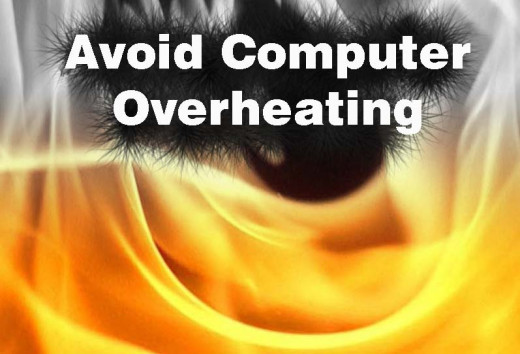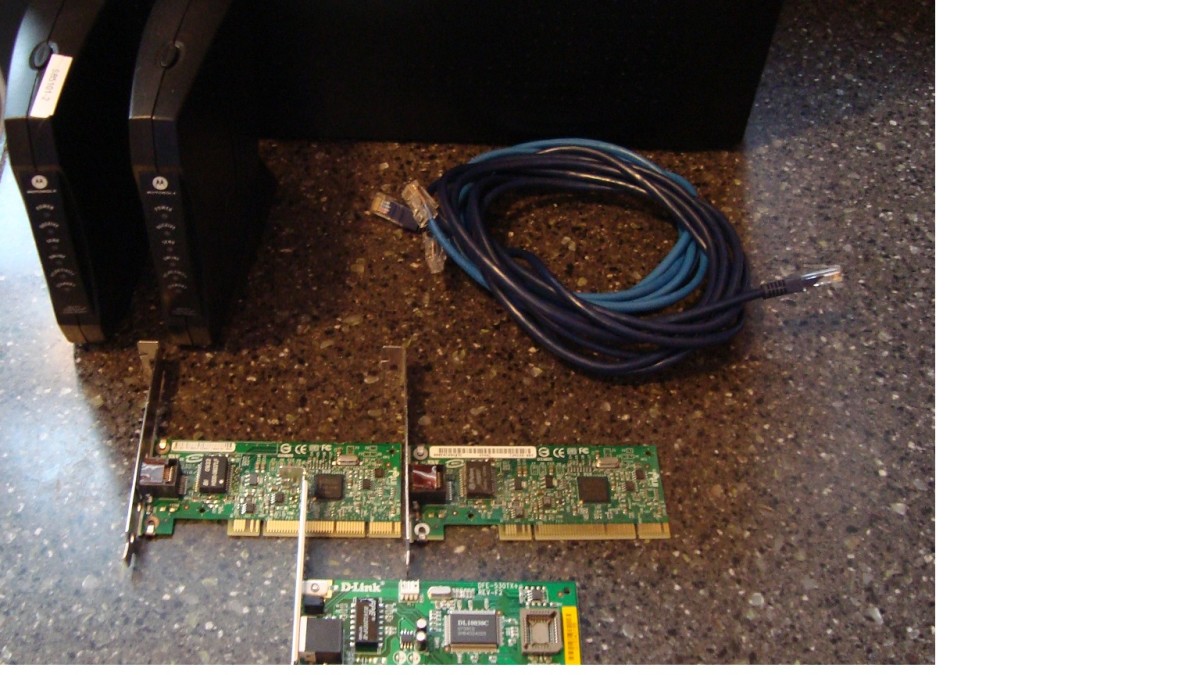How to Avoid Computer Overheating

Computer overheat causes
Computers overheat because of two main reasons:
Over-performing: Normally what overheats in your computer when it is over-performing is the CPU - a little "square-like" component that processes data. CPU stands for Central Processing Unit. When the computer is over-performing, or doing something beyond its stable capabilities, this puts an extra strain on this processing unit making it calculating lots more per second and it eventually overheats. The solution for this problem can be found on the "Over-performing Solutions" section.
Poor Ventilation System: The most common problem with the ventilation system are the clumps of dust that gather inside the computer. These clumps can help the heat to accumulate inside the box or even damage and stop the fan blades, making them useless. The solution for this problem is in the "Improve your computer ventilation system" section.
How to know if overheating is the problem?
Well, you may be noticing your computer is slow or too hot but you may not know what is the problem. A good sign that it is an overheating problem is the fan speed. You can hear the fan working since you switch your computer on. The fan should always alternate between speeds and you will hear the fan speed sound go higher and lower.
In a computer which is overheating, the fan will always work at its maximum power. If you are noticing this - your computer is overheating.
Another clear symptom is - the computer just switches off on suddenly.
Its like the human body - it faints when you are too hot or making too much of an effort. It plugs off because it is forcing you to let it cool down to avoid motherboard or component damage. If this happens you should always let it cooldown.

Over-performing Solutions
1 - Get rid of spyware and malware
One of the main reasons computers start to over-perform is because they are running lots of things at the same time. Spyware and Malware usually run in the background.
To diminish the number of processes your CPU has to run trough you should get rid of all the spyware and malware (this will help you preserve your security too). To do this, you should download the trial version of Kaspersky Internet Security or another software dedicated to make this happen.
2 - Free some disk space
If you don't perform clean ups on your computer often enough, chances are that its full of virtual litter that can clump up your computer so effectively like physical one. You should right-click your disk and in properties click disk cleanup. Get rid of cookies, internet files and empty your recycle bin. Go overboard and delete files you don't need, get rid of thrash!
3 - Defragment your Hard-drive.
When you do things on the computer, it scatters data on the disk to be able to respond quickly, however the second time around the computer needs the info it has to go back to those pieces and this takes time. To speed up the computer you should defragment the hard-drive. This will pull the pieces together speeding up response time.
4 - If you are Gaming
Download a Game Booster software. This allows you to activate "gaming mode" which disables useless processes for the game to run, making it respond quicker.
Tell me...
You are looking for a solution for a
Improve your computer ventilation system
In case of a desktop computer:
In case of a desktop computer, you probably won't need much to get your cooling system up and running perfectly. Desktop computers have a nice intake and outtake of air and in 95% of the overheating cases - its clumps of dust causing it.
Here is what you have to do:
1 - Take the side of the box with a screwdriver
2 - Use rubber gloves to avoid damaging the computer components with static electricity
3 - Clean your hardware - mainly the fans: Make sure the fans are working properly.
Additional measures you can take are setting up your computer box next to an air conditioning vent or on the floor - where the air is cooler. Avoid fireplaces and heaters next to it.
In case of a laptop:
This is trickier. You see, processors nowadays are very powerful and the laptop boxes have a poor air flow. To avoid overheating you should buy a cooling platform with fans to place your laptop on.
Avoid having the laptop on your lap or on your bed sheets - this is a death penalty for it.
You should do a little research in water cooling systems for laptops, because they are the most efficient.




